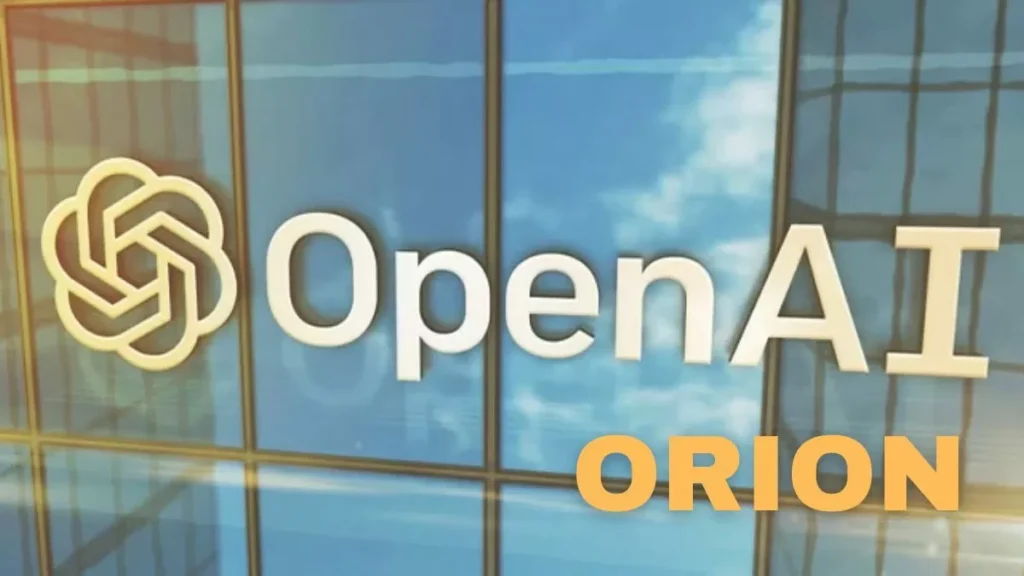OpenAI’s Next Frontier: Launching Orion by December
OpenAI is gearing up to release its next-generation AI model, code-named Orion, by December. Unlike past releases of GPT-4o and o1, Orion won’t initially be available through ChatGPT but will be accessible exclusively to select companies closely aligned with OpenAI. These companies will utilize Orion to develop tailored products and features, allowing OpenAI to gather performance insights and refine the model before a broader release. Orion represents a potential leap in AI capabilities, hinting at a new milestone on the path toward artificial general intelligence (AGI). Here’s what you need to know about this new frontier in AI and what it means for the tech industry.
Introduction to Orion and Its Exclusive Release Plan
OpenAI is departing from its traditional approach with the release of Orion, initially sharing it only with a select group of partner companies. By limiting the early rollout, OpenAI seeks to evaluate Orion’s performance in practical applications, refine its capabilities, and ensure a secure and reliable deployment. The goal is to create a model that meets rigorous standards, allowing for a smoother integration across industries when it becomes more widely accessible.
What Makes Orion Different?
Orion differs from OpenAI’s previous models in several notable ways. Whereas GPT-4 and o1 were primarily general-purpose models, Orion is positioned to be exponentially more powerful—potentially 100 times stronger than GPT-4. This increase in power opens doors to improved natural language understanding, deeper contextual awareness, and the ability to perform more complex tasks with minimal input. The model’s design aligns with OpenAI’s broader ambitions of developing AGI, a model capable of mimicking or even surpassing human intelligence.
How Microsoft Fits into the Orion Rollout
Microsoft, a primary partner of OpenAI, plays a significant role in the Orion project. Engineers at Microsoft are preparing to host Orion on the Azure cloud platform as early as November, even before OpenAI’s broader release. By hosting Orion on Azure, Microsoft is well-positioned to be a critical facilitator of Orion’s integration into business ecosystems worldwide, particularly for enterprises already relying on Microsoft services.
Potential Capabilities of Orion
Orion’s expected capabilities are groundbreaking. By combining advanced language understanding, logical reasoning, and pattern recognition, the model has the potential to transform various sectors, including:
- Healthcare: Enhanced diagnostics, predictive modeling, and patient data analysis.
- Finance: Automated trading, real-time market analysis, and fraud detection.
- Customer Service: Personalized, dynamic responses, improving overall customer experience.
Orion’s scope may also extend to scientific research, where its analytical abilities can assist in discovering new insights and solutions to complex problems.
Also Read This
Self-taught AI: ChatGPT Is Simpler Than You Might Think
Training Behind Orion
The development of Orion has involved extensive training and data gathering. OpenAI reportedly used its o1 model, code-named “Strawberry,” to generate synthetic data essential for Orion’s training. This data generation process ensures Orion’s algorithms are exposed to diverse linguistic patterns, contextual cues, and logic structures. In September, OpenAI researchers celebrated the completion of Orion’s training, hinting at the model’s impending readiness and capabilities.
Why the Release Timing is Crucial
The timing of Orion’s release aligns with several strategic factors. OpenAI recently raised $6.6 billion in a historic funding round, obliging it to deliver tangible advancements that justify investor confidence. Additionally, OpenAI is experiencing notable shifts in its executive team, with the recent departure of key leaders like CTO Mira Murati, Chief Research Officer Bob McGrew, and VP of Post Training Barrett Zoph. By launching Orion, OpenAI aims to solidify its standing as a trailblazer in AI innovation, especially amid industry-wide changes and mounting competition.
Insights on OpenAI’s New Direction
OpenAI’s approach with Orion highlights its evolving strategy to limit early access while aiming for maximum impact upon general release. This shift reflects a deliberate move to uphold product integrity, foster innovation in collaboration with partners, and streamline the rollout of increasingly complex AI solutions. OpenAI’s decisions indicate a commitment to ensuring Orion is optimized, safe, and aligned with its mission to advance AGI development.
FAQs about OpenAI’s Orion Model
Q1: What is Orion by OpenAI?
A: Orion is OpenAI’s next-generation AI model, expected to be exponentially more powerful than GPT-4 and geared toward specialized applications.
Q2: Why is Orion’s release exclusive initially?
A: OpenAI aims to assess Orion’s capabilities and refine its functions by granting initial access to select partner companies for controlled testing and development.
Q3: What industries could benefit most from Orion?
A: Key sectors like healthcare, finance, and customer service are poised to benefit due to Orion’s advanced language understanding and decision-making capabilities.
Q4: Will Orion be available on ChatGPT?
A: Initially, Orion won’t be available on ChatGPT but may be accessible through Azure, Microsoft’s cloud platform.
Q5: How does Orion align with OpenAI’s goal of AGI?
A: Orion represents OpenAI’s step towards AGI, as it combines advanced model features with a framework to continuously learn and improve over time.



